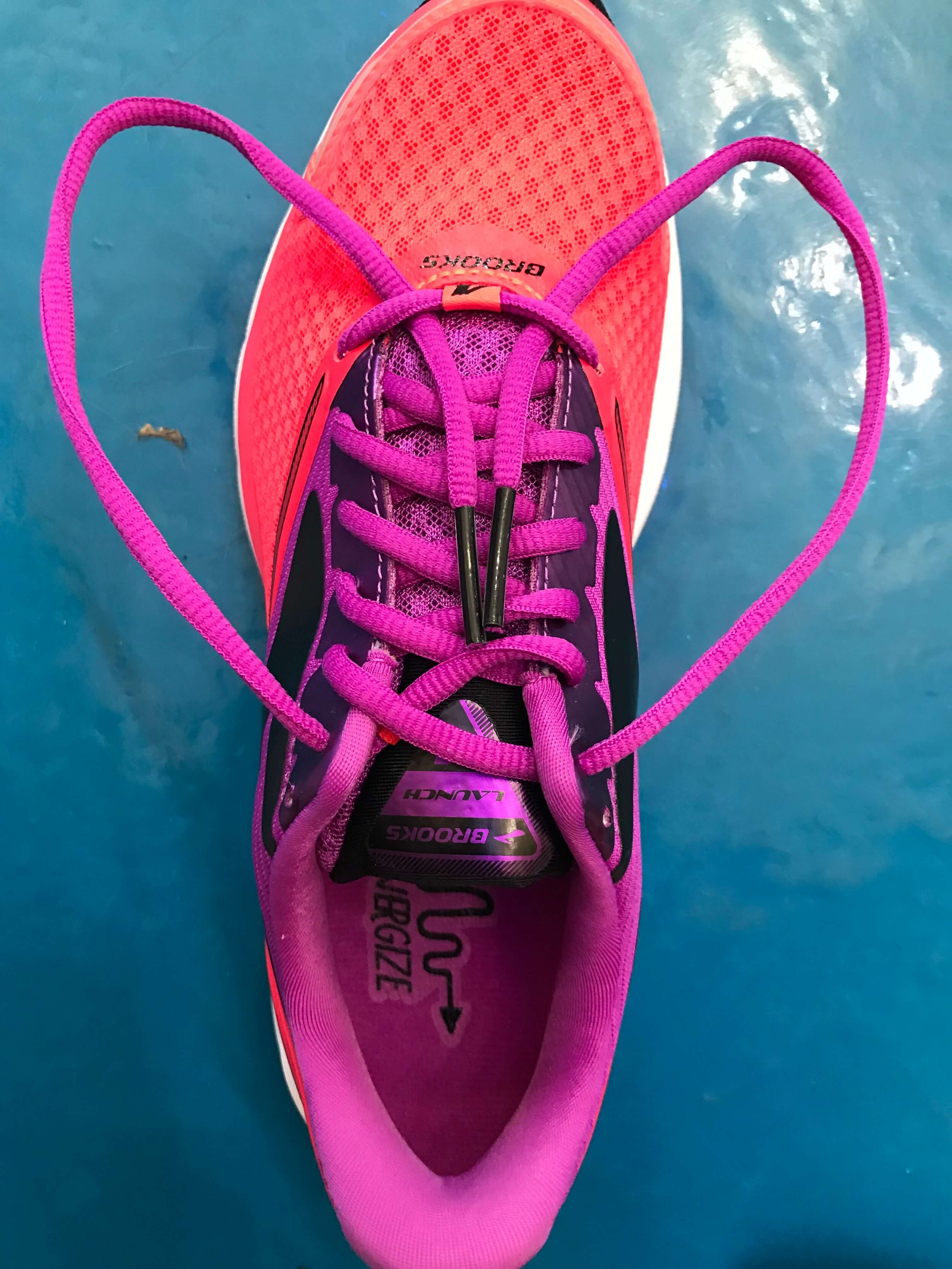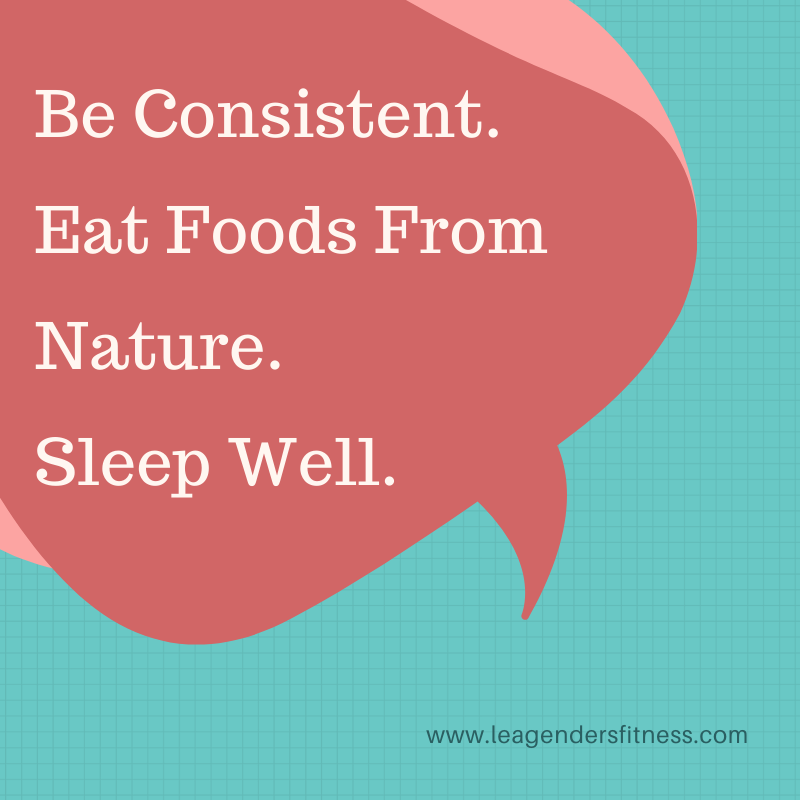Happy New Year, friends! I hope you had a fit, fun and successful 2016. I know a lot of people talk about 2016 being a drag, and not to minimize anyone else's pain, but 2016 was a great year for me. I have a roof over my head, food on my plate, a job (or three), friends, family and you. Sure, we lost some celebrity icons in 2016 and there are political and social issues that seem to be cultivating fear in the masses. I choose to think and act positively, to try to approach life from a grateful and loving heart instead of a place of fear. There are problems in the world but all I can do is to try be a shining light in my own little way. I fail sometimes, but I try and that is enough.
But I digress. Here we are in 2017. For some it may feel like a fresh start. I love that the New Year inspires the world to want to make positive changes in their lives. But New Year's Resolutions don't have a great track record for success. Why is that? Why do we want to change but then fail to take the actions necessary to follow through? I am as guilty as any.

After 42 years of experimenting (aka trying and failing), I know that going all in on an aggressive goal on January 1st usually doesn't last. After a few weeks or even a few days you end up burned out, stressed out or worse, injured. Then you go back to just doing what you always do, because well, it's easier that way. But doing what you've always done will never inspire growth and change.
Whether your goal for 2017 involves a diet or exercise plan, a professional goal, a financial goal or anything else, the key to success is sustainability.
Whatever your goals are for 2017 evaluate each of them for sustainability. Ask yourself, is this something that I can do for the rest of my life? Not 12 weeks, not 6 months, but the rest of your life.
A 60 day no carb challenge? Fails the test. I can tell you right now I am going to want to eat carbs again in my remaining years on this earth. Period. No question. (Besides, we as athletes, this includes you, need carbs to thrive.)
A 6 day-a-week one hour high-intensity workout plan? Maybe this will work out fine for the short terms, and maybe you will even lose some weight, but this is not sustainable long term (aka the rest of your life). You are much better served sticking to 20-30 minutes most days of the week alternating between high and low intensity workouts. Think of it like this: Would you rather workout hard and diet for 12 weeks, lose 30 pounds and then gain it all back once the program is over? Or lose 30 pounds over a longer period of time and keep it off for the rest of your life?
Whatever your goal, make it something that is sustainable for the rest of your life. Suffering for 12 weeks won't benefit you in the long run. An old lady on her deathbed doesn't remember that 12 weeks from her 30s when she worked out or dieted really hard. Temporary actions lead to temporary results.
If you really want something you have to make commitments to yourself that may be uncomfortable at first, but small consistent action over time will snowball into big results.
The big secret: Choose something that is sustainable over the long term. Commit to small action every day. Be consistent over the long term. That's how you have a successful New Year's Resolution.
I wrote a post called "How to Make Exercise a Daily Habit" if you want some ideas to get started on your sustainable workout goals. Remember it is always best to start slow, you have the rest of your life to build on it.
What are your new year's resolutions? Do they pass the sustainability test? I am going to start getting up early again, at 5:30am to workout some days and work on my blog and business other days. It is a good habit that has fallen to the wayside and a positive change I can make in my own life in 2017.
I thought this article on Breaking Muscle was outstanding and illustrated my point even further. "Changing Your Life is Not a 45 Day Challenge."
Like this post? It helps me when you share.
What happened when I gave up alcohol for 1000 days? Spoiler alert: Everything got better.
Do you have reasons for missing workouts? Or are you making excuses? Do you know how to tell the difference? In this post, I will help you discern between excuses and reasons so that you can move forward in your training despite obstacles, fears, and setbacks.
If you’ve been tempted by a quick fix in health and fitness, we all have been there. It’s easy to think that if you could achieve results quickly, you’d be happier, but the real transformation happens during the journey. Learn to love the process and a healthy lifestyle will follow.
It’s not too late to salvage this year and get on track to achieve your 2020 goals in the last 100 days of the year. Sept 23 is the first day of the last 100 days of 2020. In this post, I share the framework to achieve your end of year goals.
Do you find calorie or macro tracking too tedious, and often not effective? In this blog post, I review five ways you can adjust your habits to lose weight without counting calories; including hand portion control, eating slowly, consume more protein and vegetables, improving sleep quality, and reducing processed foods.
I love running so much that I wrote it a love poem for Valentine's Day. Plus a round-up of more bad poetry on the blog.
Fitness motivational quotes are usually made with good intentions, to inspire you to work harder, and never give up. In this blog post, I take a look at popular fitness quotes that have some truth, but I also explore the possible pitfalls, so you can avoid the thought patterns that can lead to disordered behaviors.
Learn to avoid the comparison trap and to celebrate the P in PR by celebrating the small wins along your journey.
Runners need to cross-train to be well-rounded healthy athletes, but it’s important they are choosing the right kind of cross-training that will boost (not inhibit) their running performance. In this blog post, we cover the benefits of cross-training, types of cross-training, the best cross-training for runners, what not to do, and how to fit it in your running schedule.
This month my husband and I are challenging ourselves to prepare and eat all meals at home. Read about the benefits of eating at home, how to prepare for the challenge, and to overcome obstacles. Are you in for an eat at home challenge? How hard would it be to avoid restaurant meals for a month?
There are three steps to set up your environment for dieting success. 1. Clean out your pantry and fridge so the foods that are close at hand support your goals. 2. Go grocery shopping and buy the types of foods that help you achieve your nutrition plans. 3. Meal prep so that you have healthy foods convenient and available for when you are tired, late, stressed, and frazzled. Explore these blog posts for more tips for success.
The single-leg deadlift is one of the most effective exercises for runners to improve balance and build independent hip and leg strength to run strong and reduce the chance of injury. Learn to perform the single-leg deadlift properly, and how to progress the exercise for continuous improvements.
You don’t have to overhaul your diet to see results and improvements in running performance. Instead, develop these habits to simplify your nutrition and diet strategy. 1. Eat minimally-processed foods. This alone will correct most issues with diets. 2. Eat adequate protein to support your goals. 3. Drink enough water. Simple enough to execute right away.
If you have questions about running and weight loss, I’ve rounded up the blog posts to help you with answers. Why do I gain weight during marathon training? What to do when your weight loss plateaus from running. Are you running for performance, or running for weight loss? And why it matters that you choose one. I finish my personal story of how I used running as part of my strategy for permanent fat loss.
If you started running to lose weight, and it worked at first, but your results have stalled, this blog post can help you understand the reason why, and what to do about it to continue to see new weight loss results.
Most runners know that to improve performance and longevity in their sport, that strength training will help them run faster, get less fatigued, and help prevent injuries, but still, many don’t. I asked runners for their excuses so that I can help them overcome the obstacles that prevent them from doing runner-specific strength training. Follow along as I debunk common misconceptions about running and strength training.
Often times, the thing that holds us back from achieving our goals is our own mind. Sometimes we hold limiting beliefs that block us from progressing forward. In this blog post learn to recognize limiting beliefs and overcome the resistance that holds you back. We are what we think. Is it true because I think it, act like it and make it so? “Whether you think you can or think you can’t…you’re right.”
Runners who strength train are stronger, faster, and have a reduced chance of injury. The five reasons runners need to strength train are to run faster, to run longer, to reduce injury risk, lose fat, and increase confidence. Learn more about runner-specific strength to improve performance
Nutrition can be so confusing. One expert says to include fruit in your diet, and another says to eliminate it. If you are looking for a list of foods to avoid to stay healthy, the internet is full of them, but we should be listening to our bodies when deciding what makes us look, feel, and perform our best. Here is a list of foods you don’t have to avoid (if you don’t want to) to stay healthy. Learn to tune into your body’s feedback to determine which foods are best for you.
If you are a runner with big resolutions for the new year, I pulled together 10 blog posts that can help you reach your goals. Whether you want to run a faster 5K, your first 5K, or half marathon, get up earlier to work out, start strength training, or lose fat, I’ve got you covered! If you need more individualized run coaching, I am opening up a few more online spots.
Forget about cleanses and detoxes in the new year and instead make a sustainable resolution to build healthy habits over the next 31 days with this new year's challenge. No extreme behaviors required for successful completion.
























Are you someone who feels the tension between what you should do and what you want to do and hopes to make better choices and decisions to enhance your long-term health? I will cover some tangible ways to revise your thinking, environment, situation, and habits for the best chances of success. People with greater self-control are more likely to achieve their goals